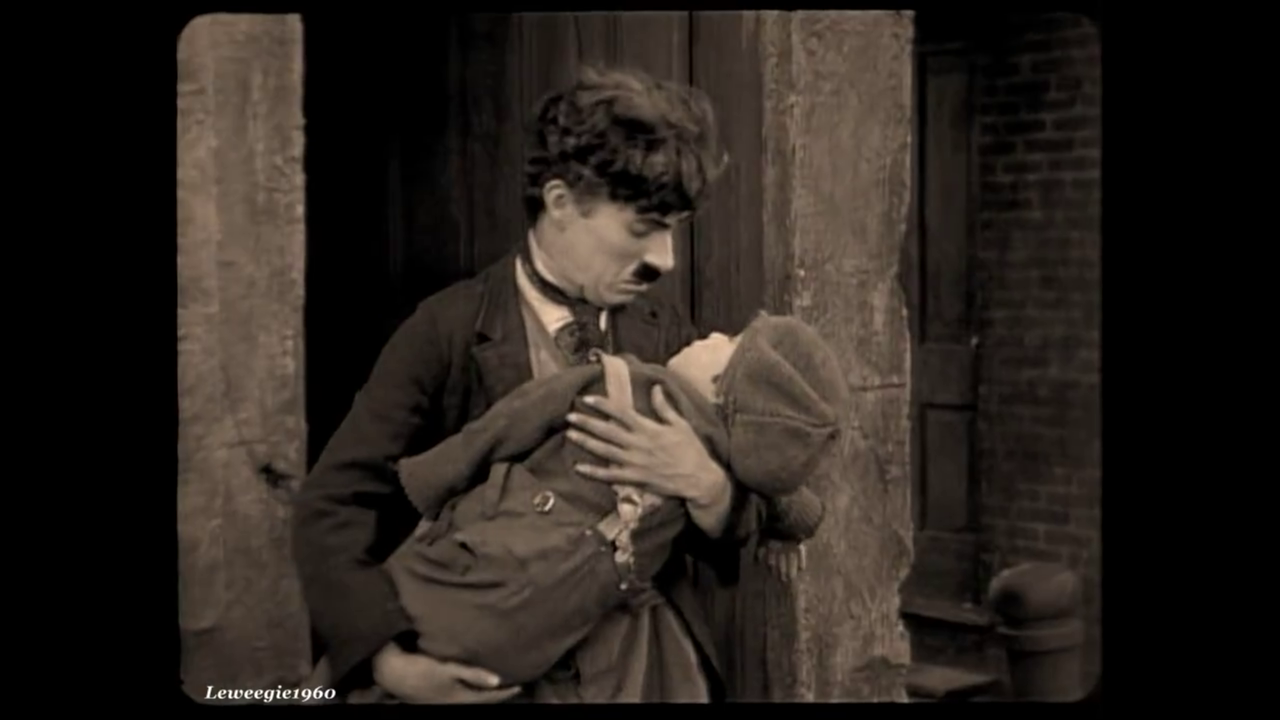
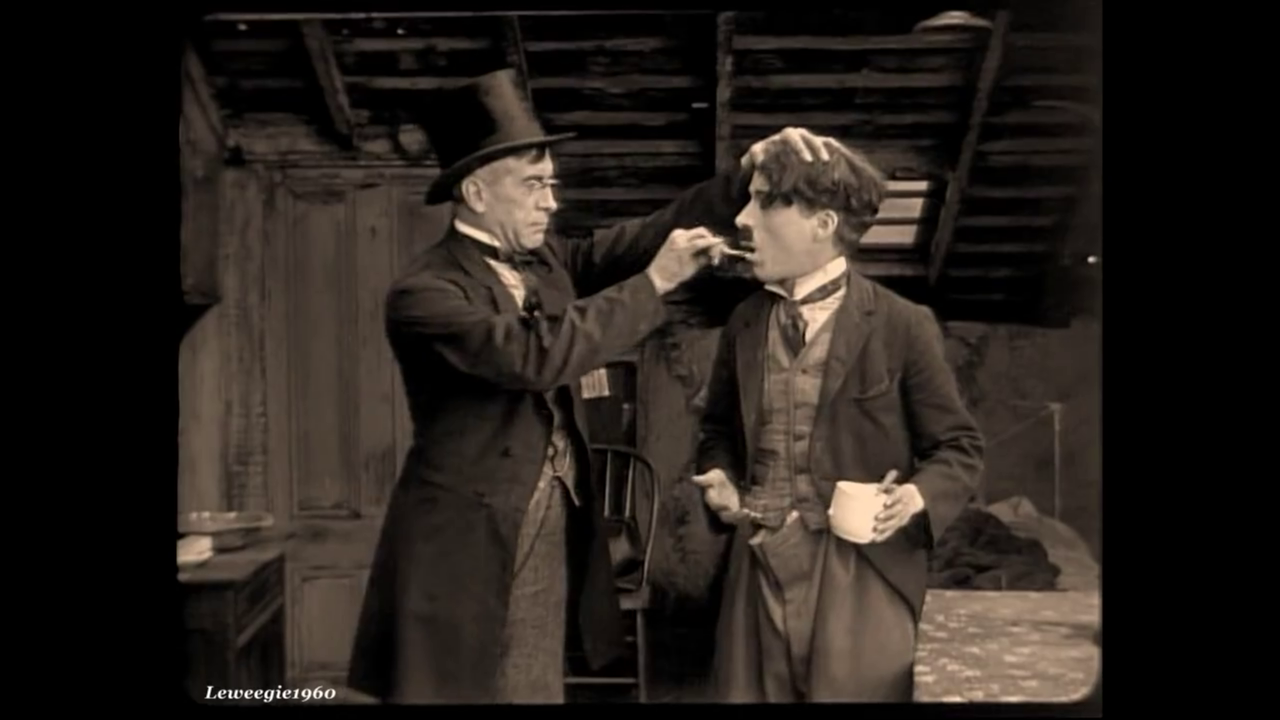
— those were the words four-year-old Jackie Coogan used to introduce himself to Chaplin. David Robinson notes that, with Chaplin’s love of words (something we might not expect from a silent comedian), this was bound to endear him as well as impress him. It’s also a good job description of Chaplin, and his magic act in the following sequence from THE KID shows him a veritable Cagliostro.
“I must go now, but I’ll return,” says Edna, anticipating Chaplin’s VO in THE GOLD RUSH: “I am going, but when I return, I will come back again.”
Jackie’s illness is too sudden and unmotivated to work as pathos, at least to my eyes, but it gets us where we’re going: a doctor is called (a good bit from one Jules Hanft) and Charlie happens to admit to not being Jackie’s natural father. The doc, being an officious busybody as well as an idiot, reports the case. Charlie has shown him the note that says “Please love and care for this orphan child,” which does not say “Please put this child in an uncaring institution.”
This is raw stuff for Chaplin, of course, who had been in the workhouse as a boy when his mother became too mentally ill to care for her sons. Nestor Almendros filmed an interview with Chaplin late in his life, and when asked if he was happy, CC replied “Yes, of course, I’ve got money.” Almendros was appalled by this shallow and materialistic reply, but think about what’s behind it.
Chaplin now follows the DW Griffith rulebook: charity workers, social workers and the like are baddies, just like kops. (Something I was told at a party by a social worker: if a department has a particularly bad case, like a child who gets murdered by their stepdad while supposedly being monitored by social services, the department gets its budget cut — of course making further tragedies more likely, not less,)
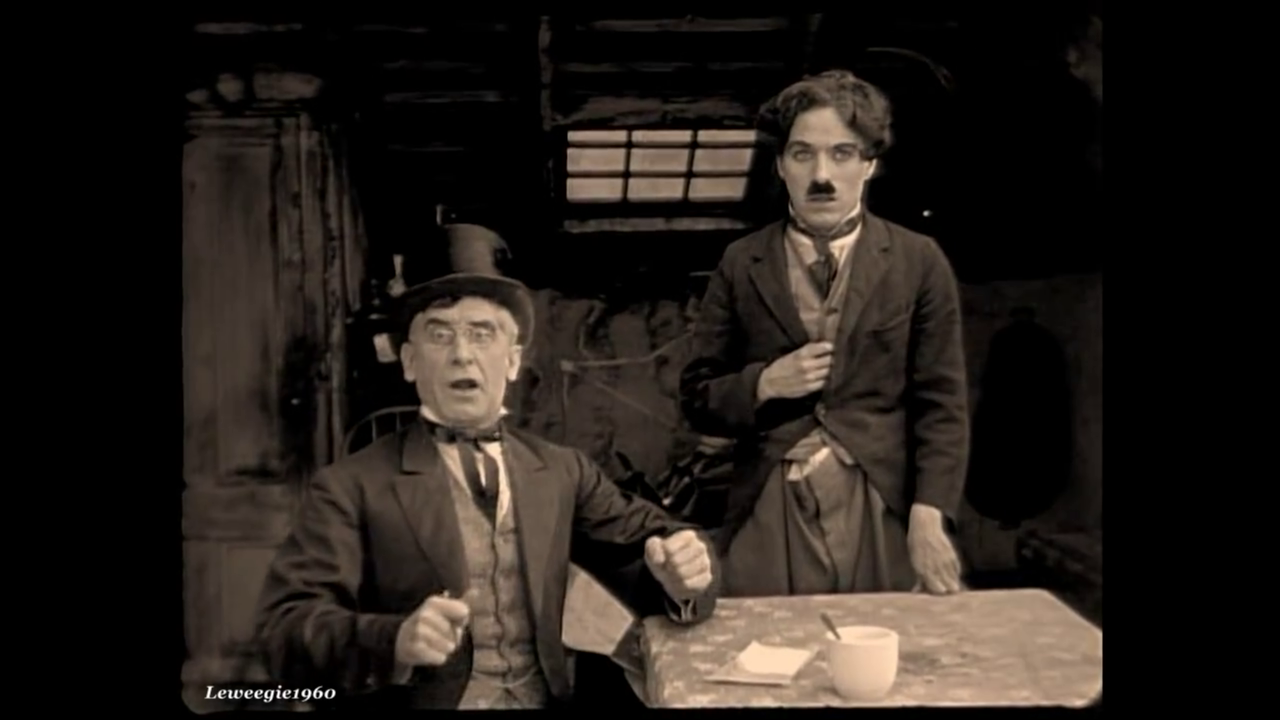
Incidentally, the doctor gets to do something Chaplin’s supporting cast are rarely allowed to do, post-Keystone: he turns and appeals to the audience. I guess he’s that kind of guy. Charlie’s doing it too, so why not?
The doc blusters off, still complaining about everything in sight — he’s sat on the toilet-chair which broke, the place is filthy, the stairs nearly kill him. Look how tiny Charlie’s hands are. Now it’s September!
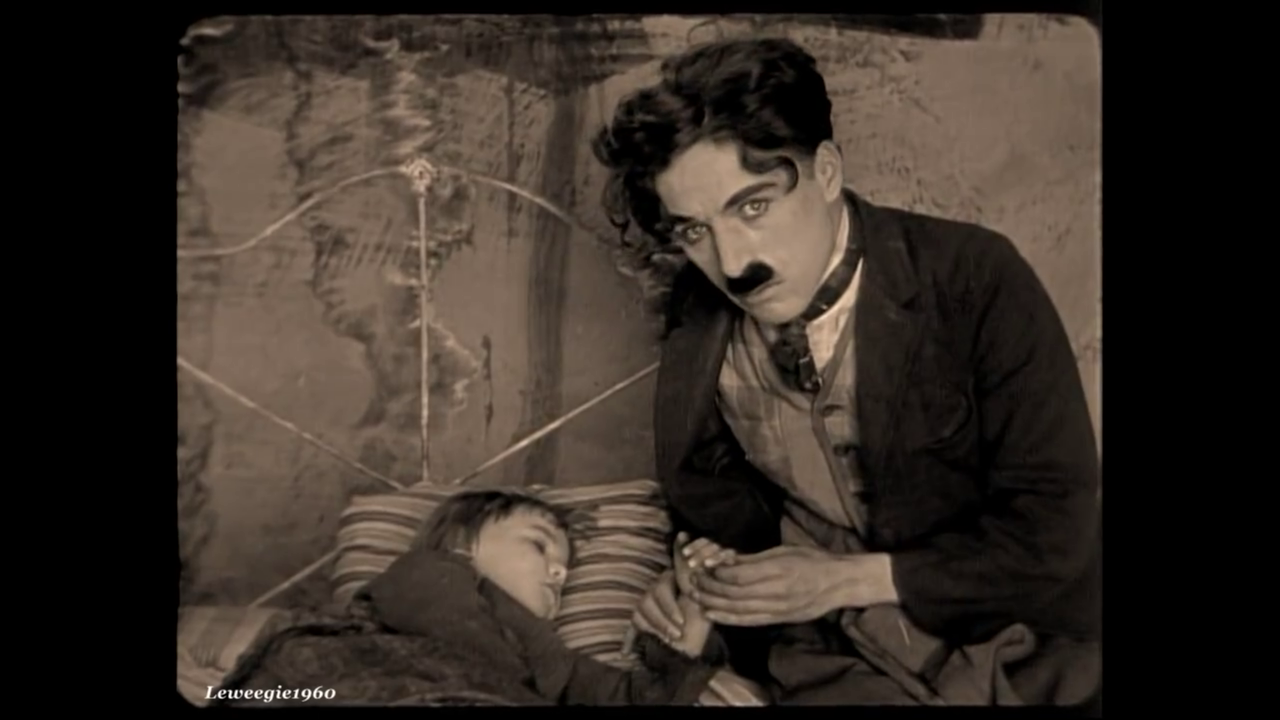
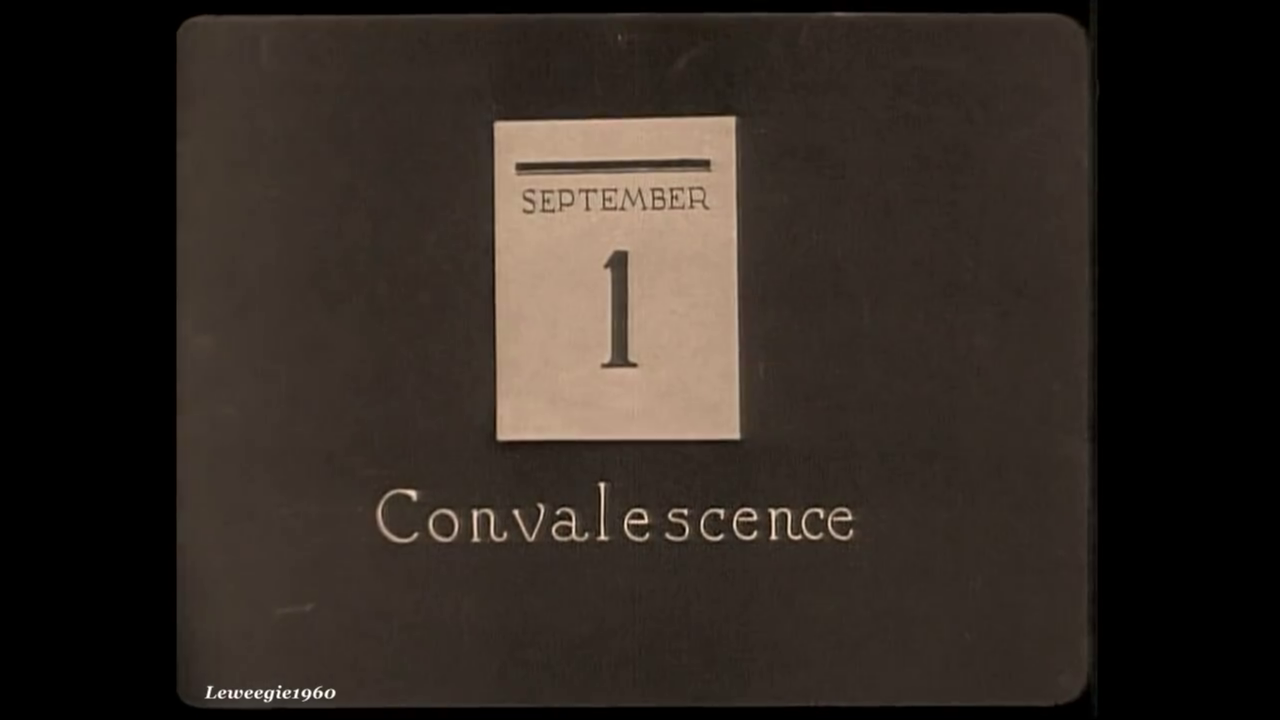
Now the two brutes from the orphan asylum turn up. Fantastic the way the one in charge won’t even talk to Charlie, relaying his questions (“Ask him where the kid is,” while Jackie is in plain view) through his doltish underling.
Things escalate fast — these guys, apart from their lack of human empathy, are incredibly bad at their jobs. Chaplin has learned, possibly from Griffith, how to amplify the emotion of a scene with a well-placed closer shot:
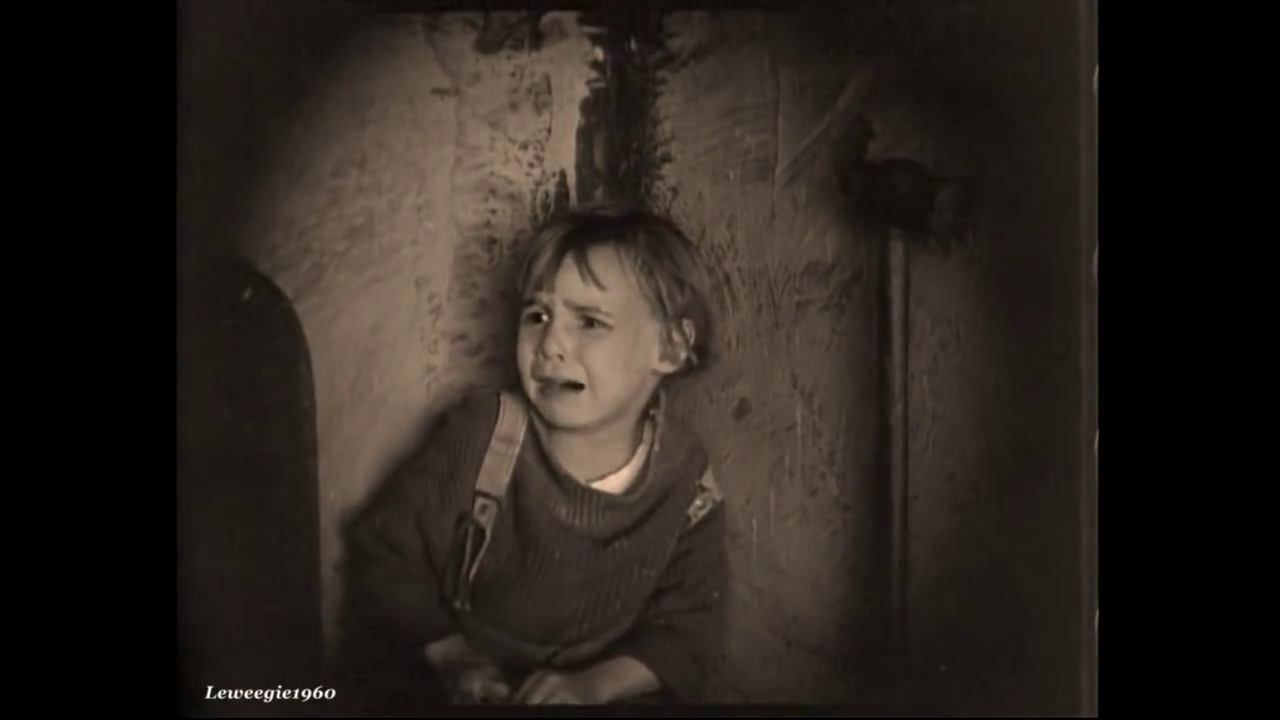
jackie saves the day for now, striking both intruders with a hammer and chasing them away. Appropriately enough, I think it’s a chasing hammer. I’m interested in the balance of comedy and drama in the next sequence, the point where Chaplin’s use of comedy and melodrama together reached the sublime. The hammer thumps are something we’ve seen in Chaplin comedies before — THE FATAL MALLET is almost entirely devoted to blows on the head — and it’s gratifying to see these guys receive them, but they’re not played particularly for laughs here. We’re too concerned with the drama to be ready to laugh, I think.
The orphanarium guys return with the film’s chief kop, Tom Wilson. Wilson’s never hugely funny, but that’s fine here, we want a bit of unleavened menace. The supervisor gets a bowl of flour smashed in his face — good, good — but again, it’s part of a dramatic struggle, not funny. Jackie is successfully abducted.
Coogan, interviewed by Brownlow & Gill, describes how his hysteria in this scene was produced simply by Chaplin talking to him, explaining the meaning of the scene, a kind of hypnosis. No child cruelty was involved, though one suspects Jack Coogan Sr. would have been on board if it had been.
That interview is one of the greatest things ever, though I sadly note that Jackie is NO LONGER CUTE. I’m impressed that the camera operator risks a zoom at a key moment, as an emotional intensifier.
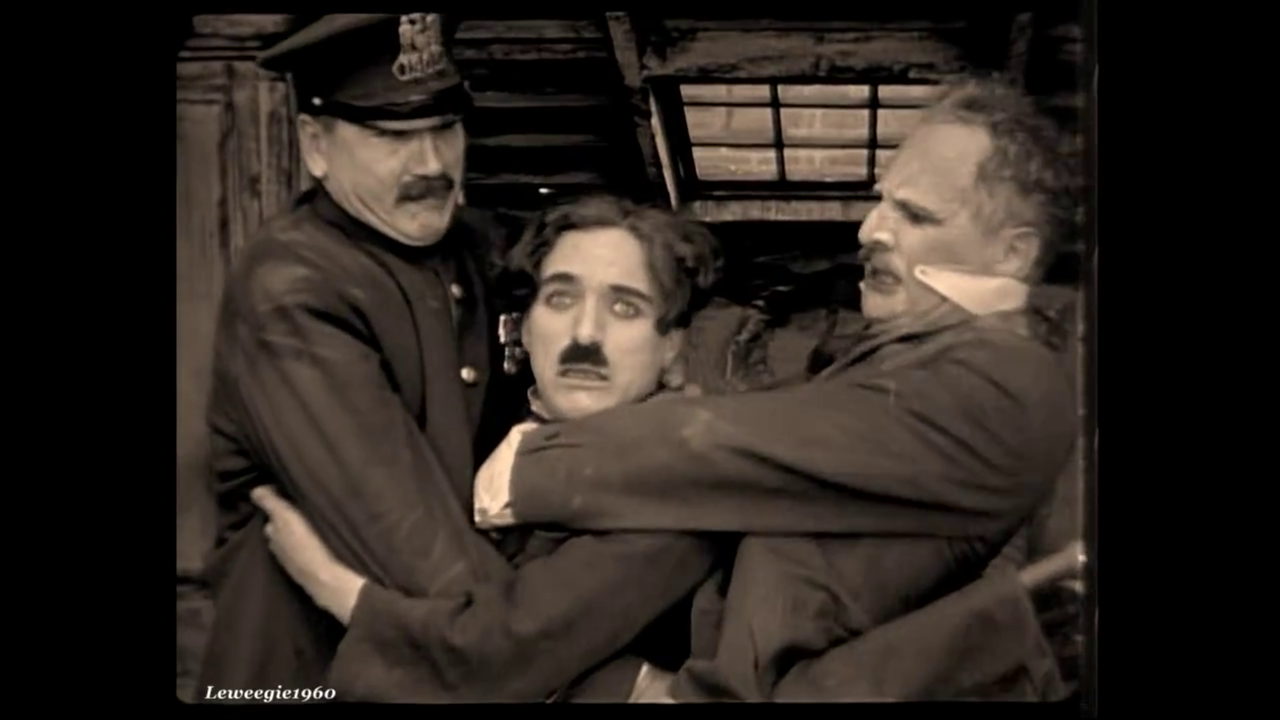
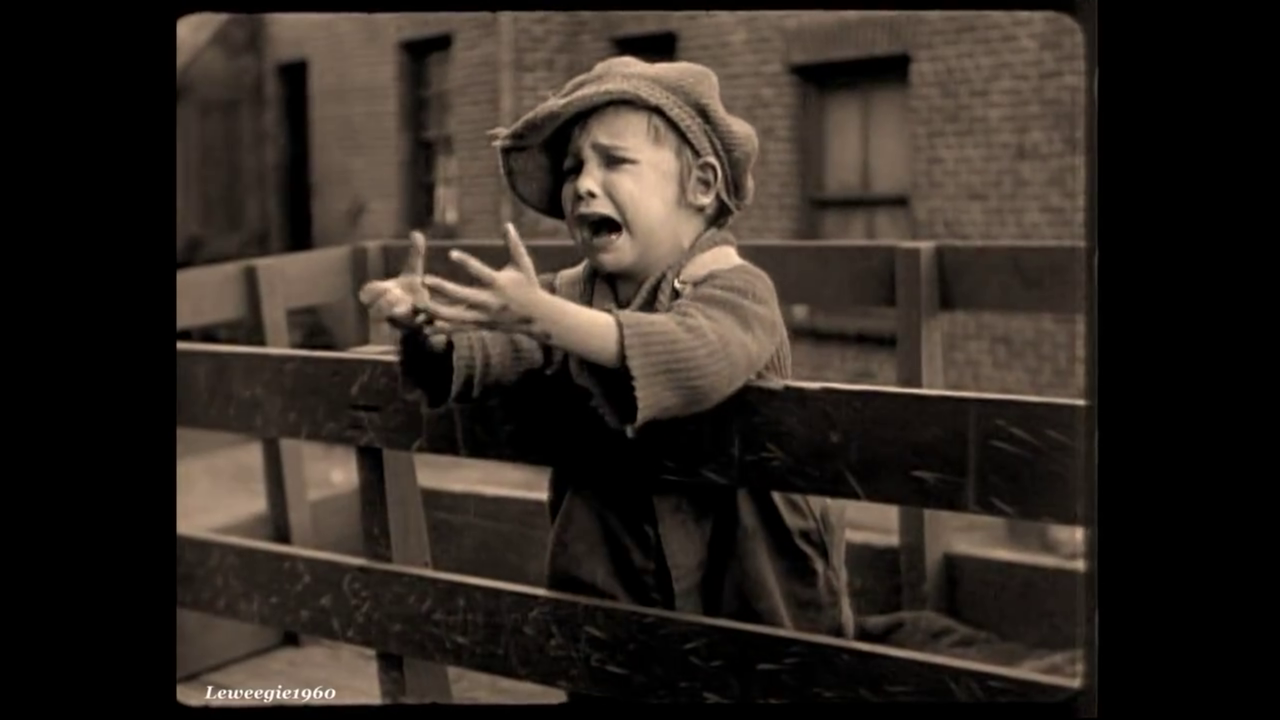
Meanwhile, Charlie is struggling with the two heavies, looking straight at us — a little too much? Never mind. Chaplin’s cinema is inherently proscenium-like, our presence as audience is regularly implied, the fourth wall is not only broken, it’s dissolved, and the effect is whatever the opposite of verfremsdungseffekt might be,
The asylum guy gets two more blows on the head, and this is technically slapstick, in the midst of tragedy, so it plays a little oddly but not so it bothers us. Charlie escapes through a skylight and we now get an exciting rooftop chase as he clambers along the houses, actually preceding the child-catcher’s van down the street, before jumping in the back of it and duffing up the supervisor.
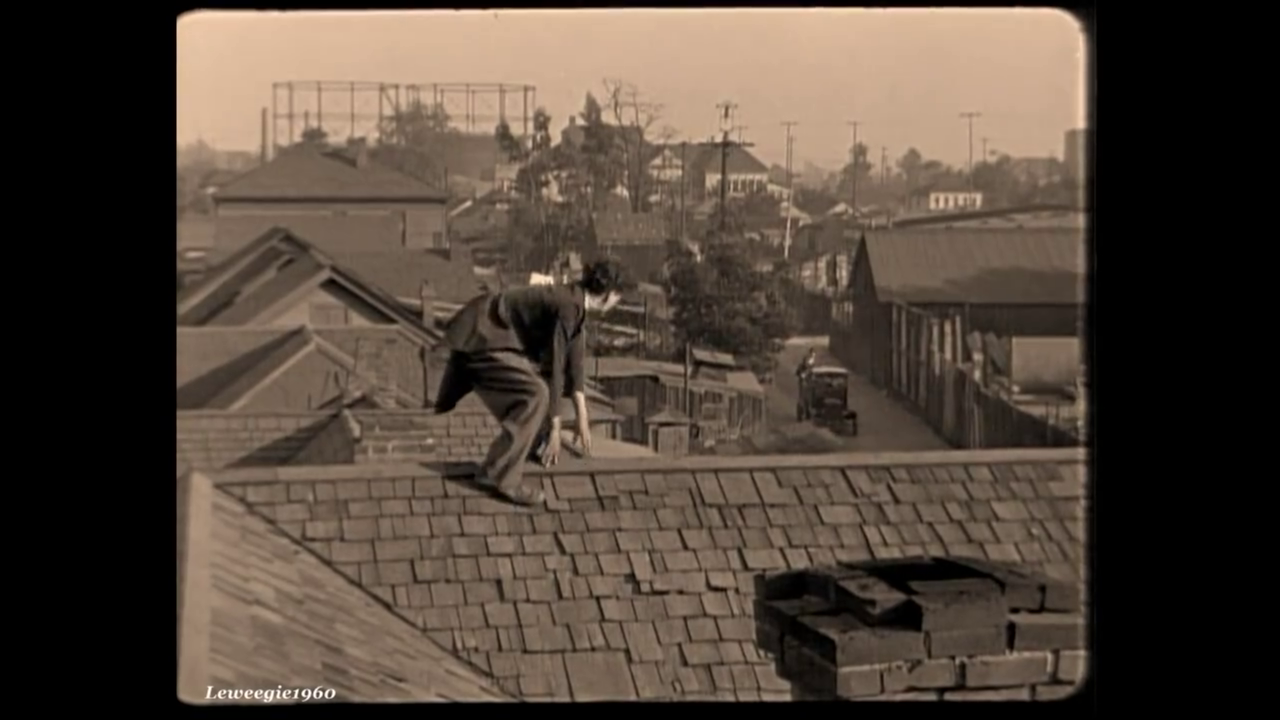
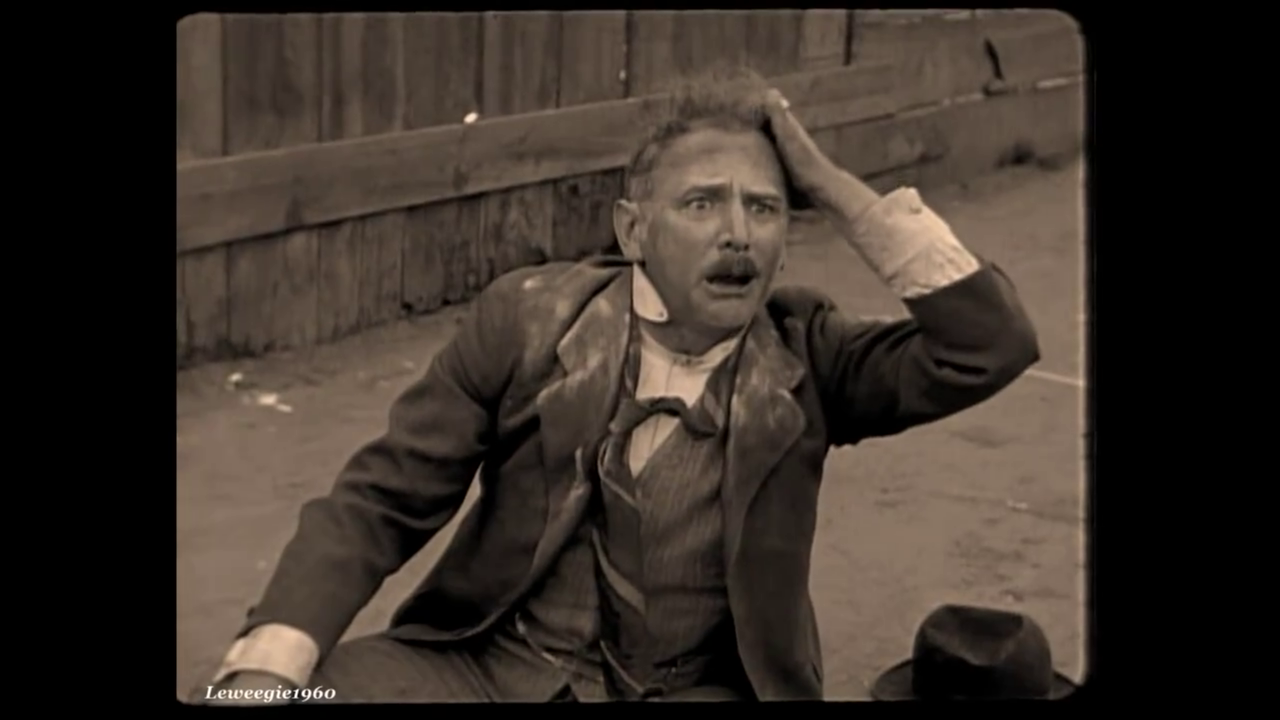
The IMDb lists Frank Campeau as the Welfare Officer (a better title than the ones I’ve been giving him) but Campeau, a character guy for Fairbanks and later in many westerns, seems to be a different man with a different man’s face, so I would like to know who this excellent baddie is.
Again, the W.O. getting kicked from the van and left in the dust is very satisfying, but doesn’t play as comedy, exactly. It’s a slightly amusing incident in a dramatic situation in a comic film.
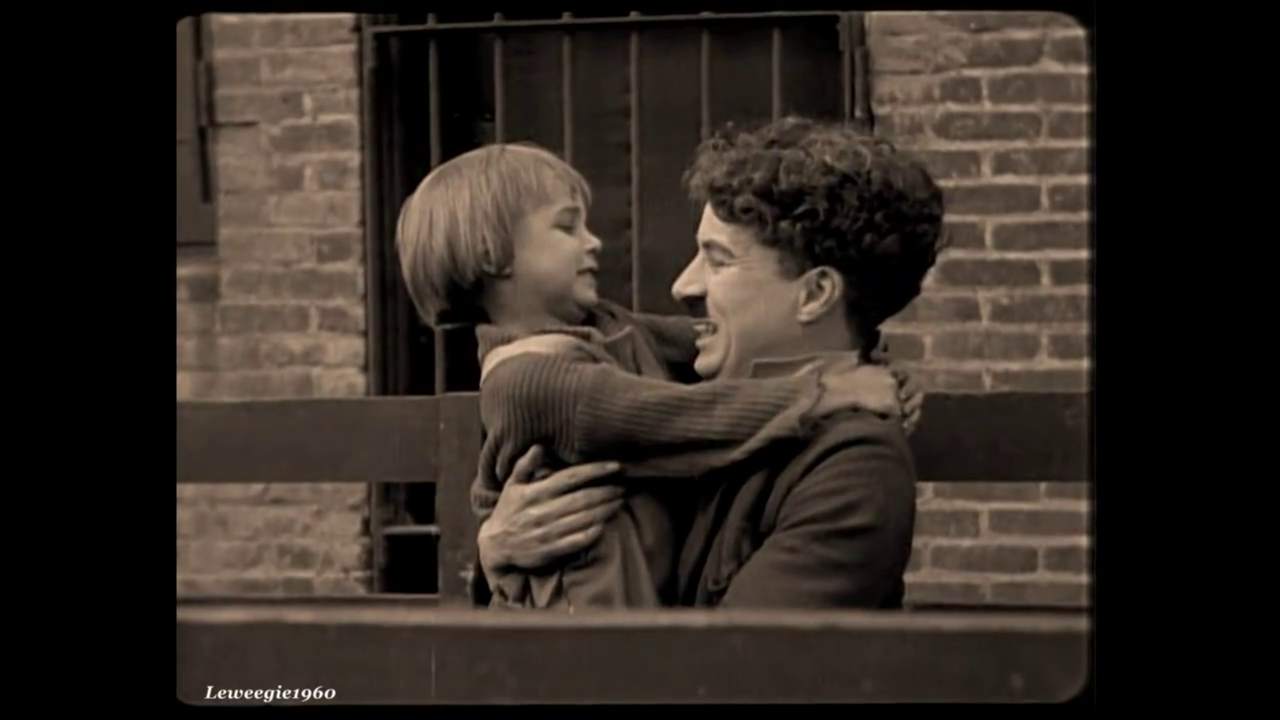
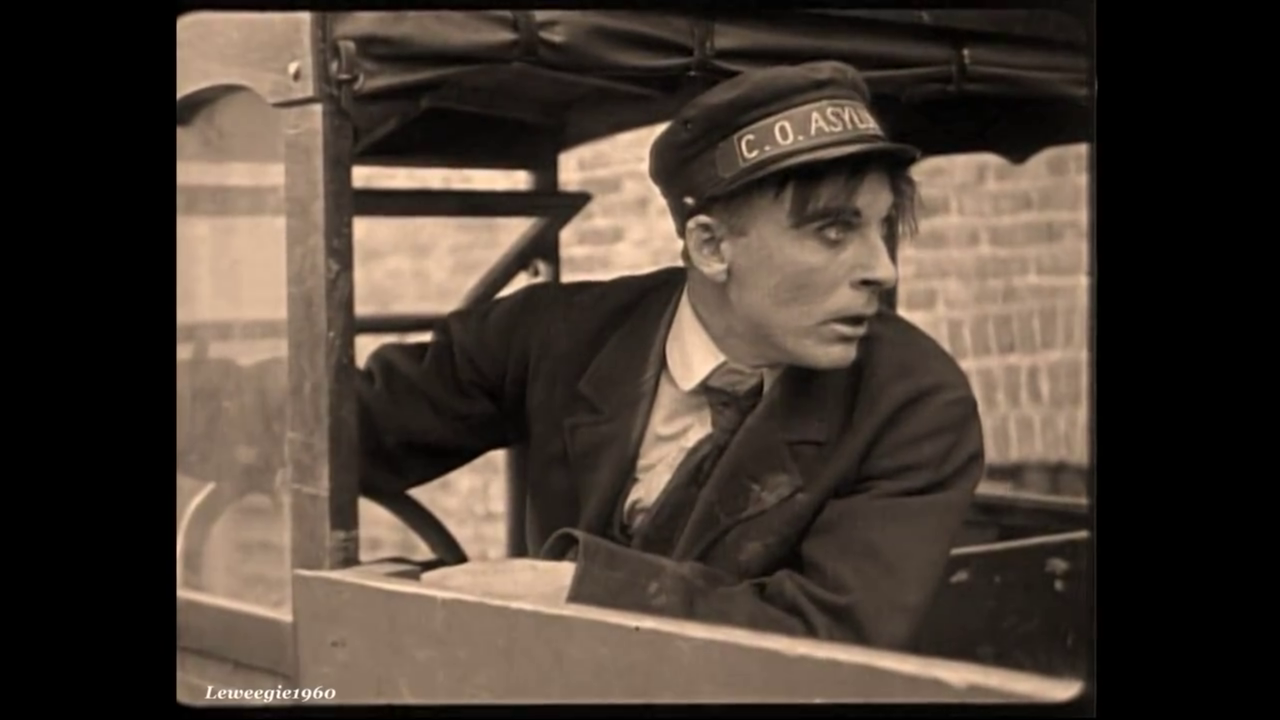
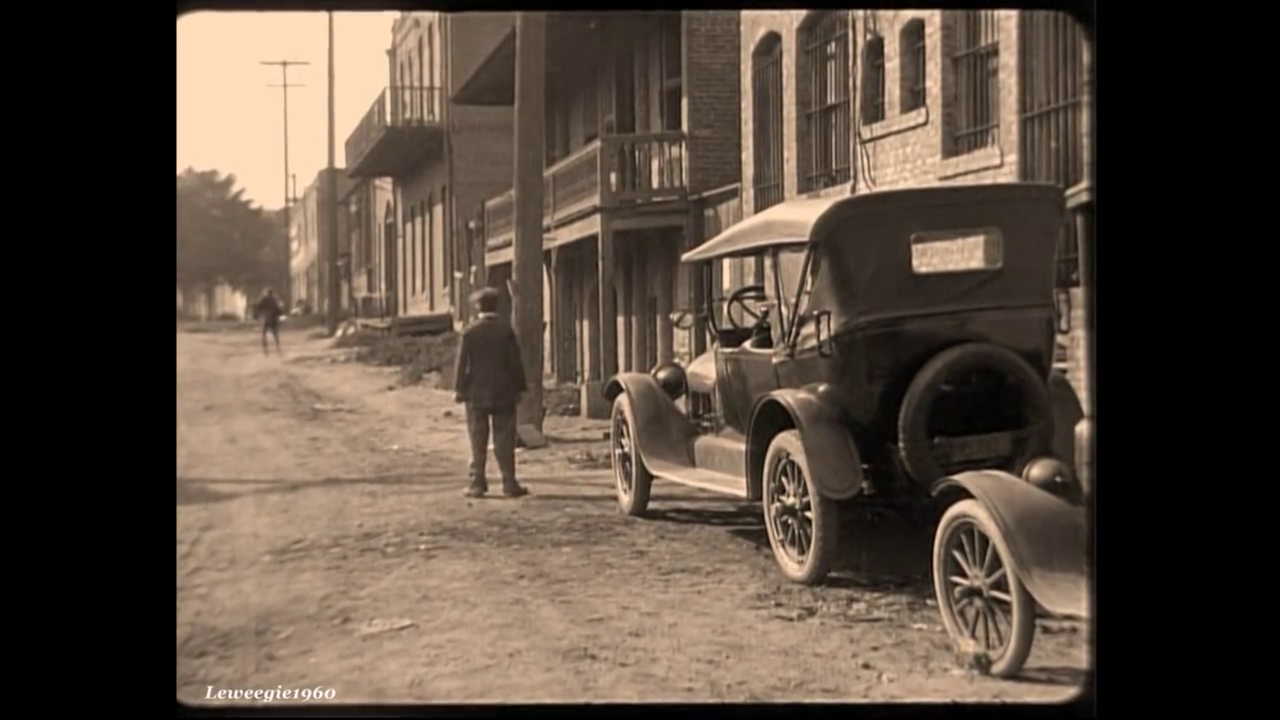
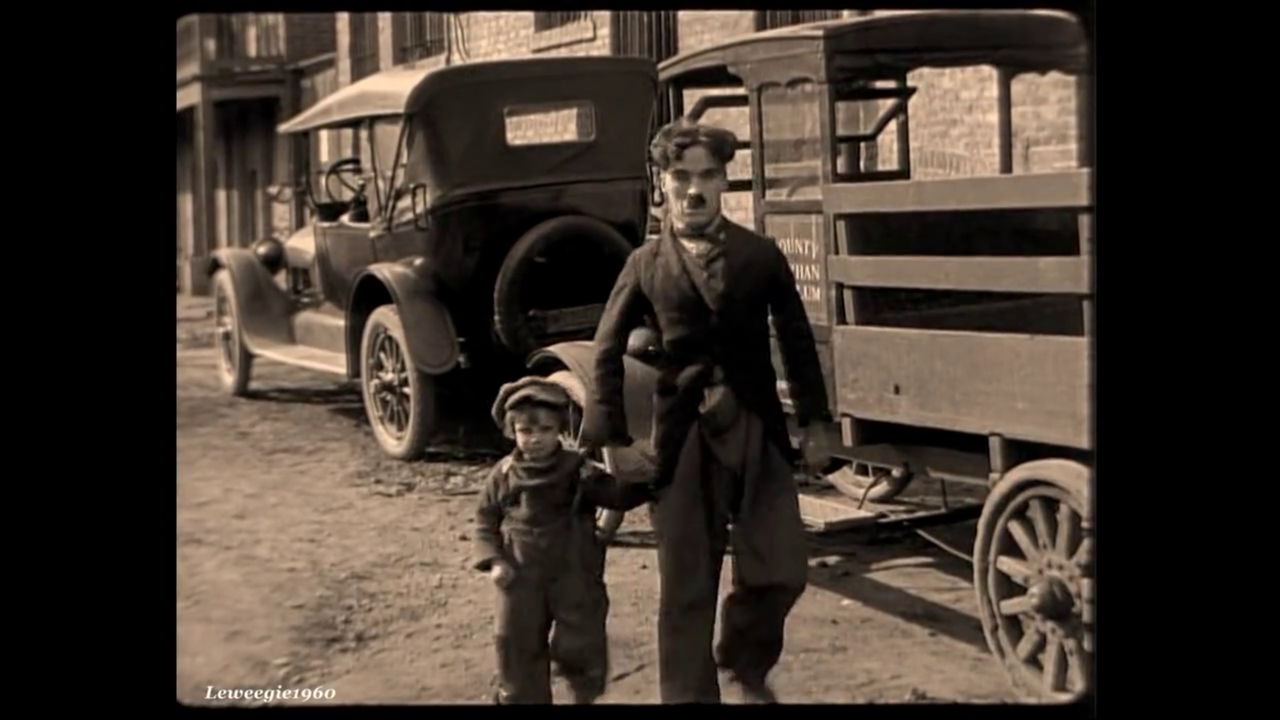
The eventual embrace with Jackie is unbearably emotional. And then, as Coogan noted years later, Chaplin felt the need to top it off with a bit of humour, so he chases the driver away with a series of feints — now that we know it;s going to be alright, we can laugh freely, and it’s a terrific release. Charlie & Jackie then walk off, victorious.
BUT — in a genuinely clever bit of plotting, the doctor now shows Edna the note which Charlie showed him, and the third act is set in motion IMMEDIATELY.
I will write about this tomorrow.